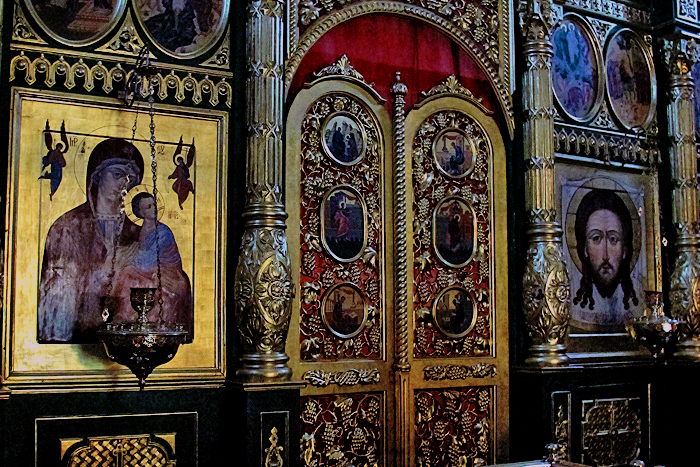
Saint Seraphim of Sarov used to say, “There are thousands of fools for their own sake but there are few of those who are fools for the Lord’s sake.” What did he mean? First of all, there are various kinds of foolishness. We often perceive fools-for-Christ as just delusional or mentally unstable individuals. In fact, foolishness-for-Christ and madness are the opposites. The real foolishness-for-Christ is a way to follow the Lord’s commandment Blessed are the poor in spirit: for theirs is the kingdom of heaven (Matthew 5:3). What does being poor in spirit mean? According to the Holy Fathers, it means being humble. Thus, the main characteristic that you can use to tell a fool-for-Christ from a madman is his or her humility.
All Orthodox saints who carried out their ministry as fools-for-Christ, although they seemed to be fools or mentally challenged, never trespassed God’s commandments and never boasted of their way of life. At the same time, they were often mocked and even beaten up. In spite of that they never grumbled and weren’t resentful. An ascetic once said that foolishness-for-Christ is a radical path to holiness because it is very difficult to love and pray for those who ridicule and offend you. That was what fools-for-Christ managed to do.

Foolishness-for-Christ is known to become somewhat “popular” in the late 19th century. Due to this fact, there were many fake fools-for-Christ. For instance, many street bums began imitating the outward lifestyle of true fools-for-Christ but at the same time they weren’t imitating the ascetics’ humility and perseverance. The fake fools-for-Christ were after glory and praise, as well as lavish donations from their followers.
Another difference between a real fool-for-Christ and a madman is that a fool-for-Christ isn’t insane. Priests who heard their confessions admit that the fools-for-Christ expressed clear and profound thoughts in private but acted like insane people in front of the public. Their insanity wasn’t real. If we analyze the “foolishness” of those people, we can notice that their words and actions aren’t illogical or meaningless. They contain a hidden message that has to be decoded.
More often than not, their seemingly silly actions were directed at a certain person to make him better. For instance, many fools-for-Christ used to break the fast on Wednesdays and Fridays, which made priests indignant. However, the fools-for-Christ explained it by saying that the people around them demonstrated only superficial piety and that there wasn’t any meaning in fasting without love of God and neighbor.
Therefore, a fool-for-Christ isn’t a fool or a madman. A fool-for-Christ is an ascetic whose entire life is devoted to serving God and people. It is for the sake of helping his neighbors, for the sake of exposing their sins and vices and correcting them that a fool-for-Christ performs some weird actions, which subject him to mockery and insults.
Translated by The Catalog of Good Deeds



